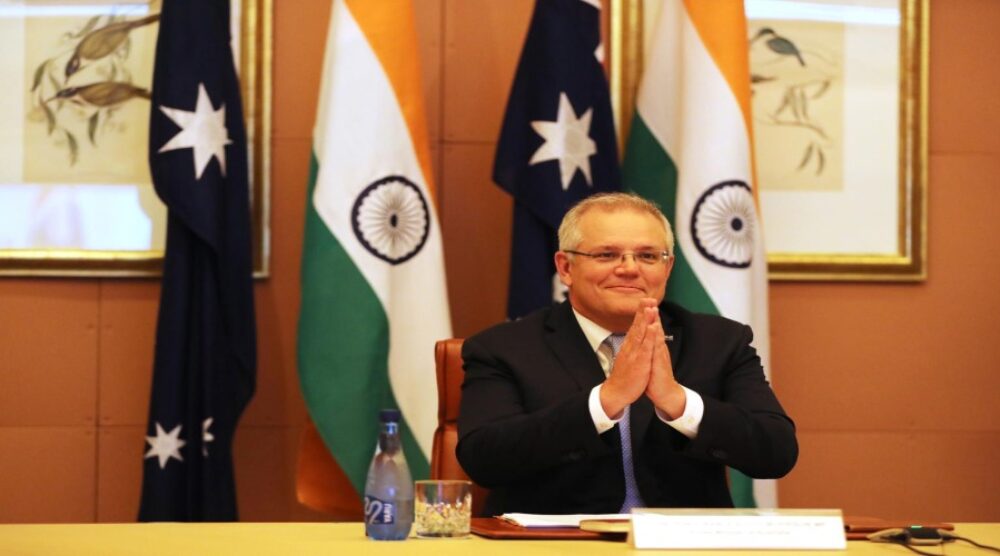IAN HALL |
Had Scott Morrison traveled to New Delhi as planned in January, it would have been the fourth such trip by an Australian prime minister in a decade, a testament to the considerable effort successive governments in Canberra have made to build a viable strategic partnership with India. But a bushfire crisis at home, as well as the coronavirus pandemic, forced Morrison and his Indian counterpart, Narendra Modi, to settle for a virtual summit on June 4.
If the two leaders were disappointed by this outcome, they certainly did not show it. Both took to social media to make a show of bilateral friendship, with Morrison posting pictures on Twitter of homemade vegetarian “ScoMosas”—a play on his nickname, ScoMo, and samosas—and expressing regret that Modi could not taste one. On cue, the Indian prime minister replied that they looked “delicious.”
This contrived bonhomie might have conveyed the mistaken impression that the video meeting lacked substance. In fact, the lengthy joint statement that followed the summit detailed several significant agreements, as well as the elevation of the relationship to a “comprehensive strategic partnership.” That formal change in status signals both countries’ desire to work more closely together on issues of mutual interest and to deepen their economic and security ties.
The most important outcome of the summit, however, was the Mutual Logistics Support Arrangement, which will allow the two sides to use each other’s military bases and is designed to improve cooperation and interoperability between their naval forces. There were also a series of other deals aimed at increasing engagement on a range of issues, including cybersecurity, trade in strategic natural resources like rare earth minerals, defense technology, and education and vocational training. And Modi and Morrison announced a series of regular ministerial and working-level dialogues, including a biennial foreign and defense ministers’ meeting. Known colloquially as a “2+2” format, these meetings serve as ways to coordinate regional diplomacy and defense cooperation.
Please click here to read the full “How Shared Distrust of China Is Fueling Closer India-Australia Relations” article published at World Politics Review, written by Griffith Asia Institute Deputy Director Research, Professor Ian Hall.








